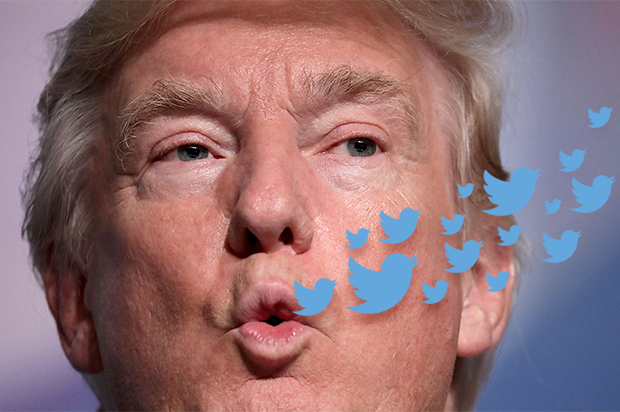A group of Twitter users who have been blocked by President Donald Trump are claiming that they have a First Amendment right to express their views to the commander-in-chief, whether he wants to hear them or not.
In a letter written by their lawyers, the users — who can’t read what he has to say in 140 characters or less — argue that “this Twitter account operates as a ‘designated public forum’ for First Amendment purposes, and accordingly the viewpoint-based blocking of our clients is unconstitutional. We ask that you unblock them and any others who have been blocked for similar reasons,” according to a report by The New York Times.
[salon_video id="14777708"]Does the Constitution take their side?
“I would categorize this under a person’s right to petition the government for redress of grievances,” said JoAnne Sweeny, an associate professor of law at the University of Louisville. “There was an interesting case in 1986 involving Larry Flynt sending Hustler magazines to members of Congress. Some members complained and the Post Office sued him. He won.”
But even though Twitter is a private company, because it’s Trump and not Twitter doing the blocking, things get thornier, Sweeny said.
“I would agree with the litigants that Twitter should be considered a public forum, and it does appear that Trump is using content-based restrictions,” Sweeny said. “There is also the interesting piece that not only is he shutting out their speech, but he is not letting them hear his. The First Amendment also has a right to listen component.”
In 2015, two professors — Nancy S. Kim of the University of California, San Diego and D. A. Jeremy Talman of Valparaiso University — argued that, because large internet-based corporations “operate with quasi-governmental powers in their relations with consumers,” it is reasonable for citizens to expect that certain basic rights be acknowledged when they use their service. They reiterate this in their conclusion, arguing that when it comes to data-mining and other violating practices exposed by leakers like Edward Snowden, companies need to be held accountable. If not, then by default the “putative agreements between them and private actors” are “imbalanced and coercive.”
While the article by Kim and Talman focuses on the post-Snowden revelations rather than the specific First Amendment issues raised by the Twitter users who were blocked by Trump, however, a similar logic applies to the latter situation.
“I think a more interesting argument is under the right to petition, not speech generally,” Sweeny said. “People have the right to speak to the government. If Larry Flynt has the right to send Hustler magazines, which members of Congress can just throw away, why don’t people have the right to tweet at the president on his public account?”

